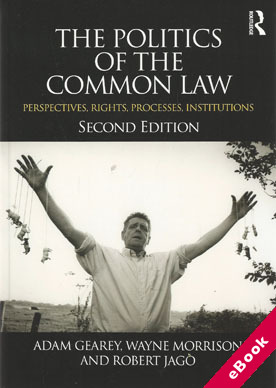
The device(s) you use to access the eBook content must be authorized with an Adobe ID before you download the product otherwise it will fail to register correctly.
For further information see https://www.wildy.com/ebook-formats
Once the order is confirmed an automated e-mail will be sent to you to allow you to download the eBook.
All eBooks are supplied firm sale and cannot be returned. If you believe there is a fault with your eBook then contact us on ebooks@wildy.com and we will help in resolving the issue. This does not affect your statutory rights.
The Politics of the Common Law offers a critical introduction to the legal system of England and Wales. Unlike other conventional accounts, this revised and updated second edition presents a coherent argument, organised around the central claim that contemporary post colonial common law must be understood as an articulation of human rights and open justice.
The book examines the impact of the European Convention and European Union law on the structures and ideologies of the common law and engages with the politics of the rule of law. These themes are read into normative accounts of civil and criminal procedure that stress the importance of due process.
The final sections of the book address the reality of civil and criminal procedure in the light of recent civil unrest in the UK and the growing privatisation of public services. The book questions whether it is possible to find a balance between the requirements of economics and the demands of justice.